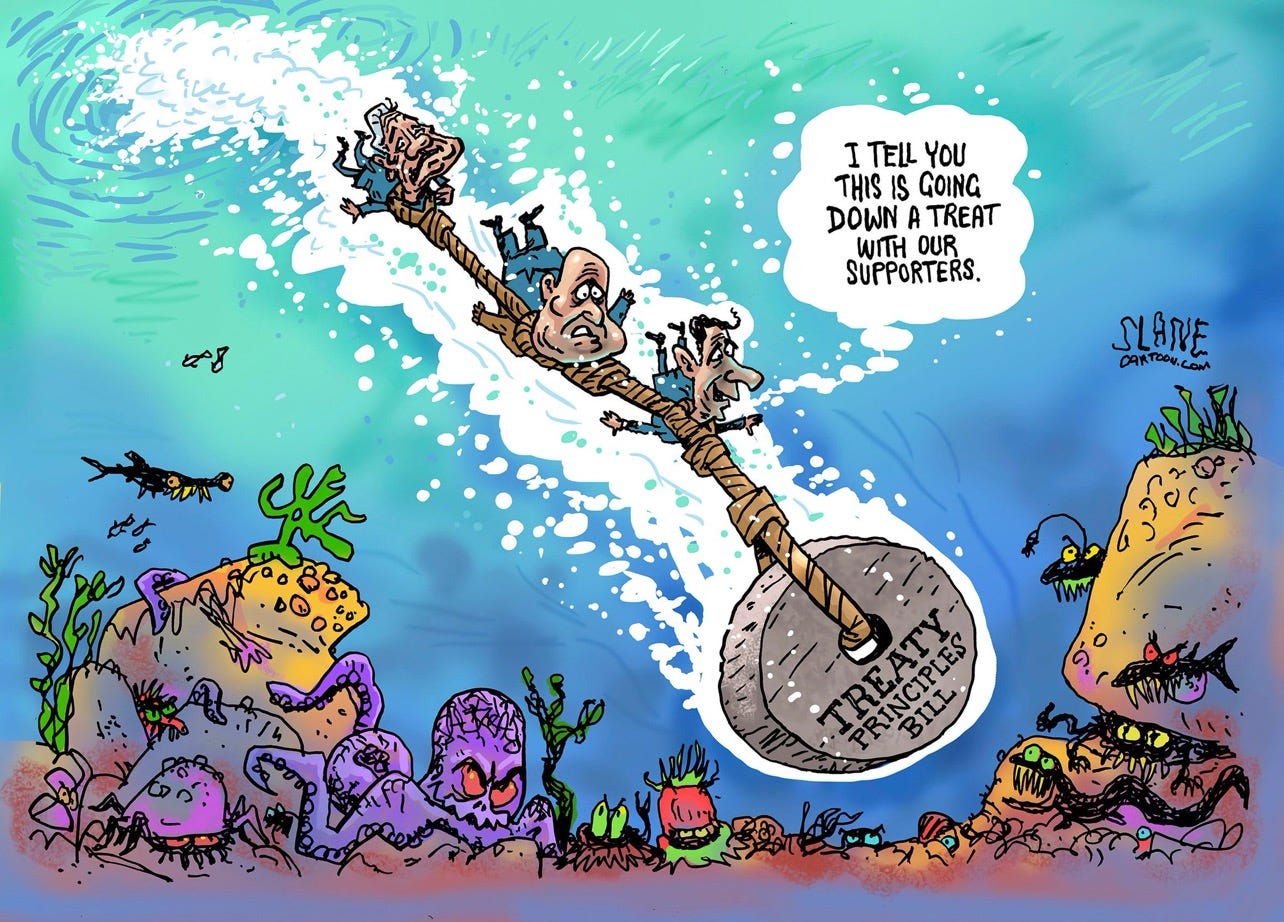
Kia ora. Long stories short, here’s my top six things to note in Aotearoa’s political economy around housing, climate and poverty on Tuesday, September 15:
The Government’s faster speed limits will: kill more people; put even more drivers, pedestrians and cyclists in already-full hospitals; and increase emissions and other health costs, dozens of experts have told the Government.
In scoop of the day, nurses working in chronically short-staffed hospitals say staff who go on leave, get sick or quit are not being replaced in many cases, RNZ’s Ruth Hill reports this morning.
In deep-dive of the day, Q+A’s Whena Owen takes much closer look at the housing crises in Masterton and Rotorua. 1News
In solutions news, the transport experts say lower speed limits improve economic growth, not the other way around.
In quote of the day, former Transport Ministry Science Adviser Simon Kingham pleads for the Government to drop its speed limit increases, which contradict the evidence globally.’
In chart of the day, the IMF has found political parties all around the world have been more fiscally expansive than they were in the 80s, except New Zealand.
(There is more detail, analysis and links to documents below the paywall fold and in the podcast above for paying subscribers. If we get over 100 likes we’ll open it up for public reading, listening and sharing)
1. Where’s the wider economic analysis?
An open letter to the Government from dozens of road safety and transport experts globally arguing against its plan for higher speed limits illustrates again just how little real economic analysis is being done by the Government.
It points to multiple studies showing lower speed limits reduce costs and improve economic development, but Transport Minister Simeon Brown is forging ahead with vague view that faster driving means more economic growth.
Here’s the experts in the letter:
A recent report from the World Bank details the economic advantages of effective speed management and refutes the misconception that higher speeds correlate with economic benefits.
Additionally, increased vehicle speeds lead to higher fuel consumption and emissions of CO2 and NO2 (which kills over 2,000 people per year in NZ), counteracting our efforts to reduce transport-related emissions.
2. Scoop of the day
Health Nursing jobs 'ghosted' as Health NZ cuts costs RNZ’s Ruth Hill
Health New Zealand insists recruitment has continued while it has been revising its budgets to find millions of dollars in savings - but front-line workers say job ads and even verbal offers have been "ghosted'.
Waikato Hospital emergency nurse Tracy Chrisholm said some patients were waiting 20 hours or more to be seen.
"In the last two to three years I can't remember coming in for a shift where we've had no-one at six hours plus."
There were simply not enough nurses, doctors or allied staff, she said.
"We have multiple people on maternity leave, we've had multiple resignations that haven't been signed off to be advertised and re-employed or covered because we're above our budget." RNZ
3. Deep Dive of the day
4. Solutions news
‘Cut the speed limits, don’t increase them’
The experts’ open letter to the Government was clear in stating the economic, health and climate benefits of lower speed limits, including evidence of the most recent cuts here, which Brown is reversing.
Proven success of local speed management: In New Zealand, both Auckland Transport and Waka Kotahi NZTA have implemented speed limit reduction initiatives that have resulted in significant declines in road crash deaths and injuries.
These life-saving measures demonstrate the critical impact of lower speeds. The evidence is unequivocal: as mean vehicle speeds rise, so do the number of deaths and serious injuries. New Zealand has made considerable progress in recent years in adopting speed limits that align with safe system principles, saving countless lives in the process.
We strongly urge you to reconsider the proposed blanket speed limit increases. Should this rule be adopted, the tragic consequence will be more New Zealanders losing their lives or suffering severe injury, along with a substantial burden on the nation's healthcare and rehabilitation services.
5. Quote of the day
“All the experts are saying 'this is a really bad idea' and it's inconsistent with what's happening in the rest of the world, it's against all science and evidence, please don't implement it, it's a bad policy.” University of Canterbury transport academic and also former Ministry of Transport Chief Science Adviser Simon Kingham, via 1News
6. Chart of the day
Expansionary politicians most places except NZ

The Kākā’s Journal of Record for Tuesday, September 17
Health: The Global Road Safety Partnership published an open letter warning that the Government's proposed speed limit increases will lead to more deaths and injuries. They cite a 2024 World Bank report which argues that lowering speed limits, not raising them, facilitates economic development via improved public health. 1News
Health: The Asthma and Respiratory Foundation NZ reported that 1 in 5 NZers are affected by a respiratory illness, up from 1 in 7 in 2021. Foundation Medical Director Bob Hancox said that, despite this, hospitalisations from asthma and COPD have gone down, reflecting improvements in treatment of these conditions.
Poverty: Presbyterian Support Northern (PSN) said Oranga Tamariki funding cuts could affect around 800 of PSN's clients and see the loss of 14 full-time equivalent jobs. PSN says the effectiveness of its social work programs at improving outcomes children and whānau is supported by Oranga Tamariki research undertaken in 2020.
Economy: Auckland International Airport announced it's undertaking a $1.4 billion equity raising to replace ageing infrastructure, fund upgrades to the airfield and runway, and to improve connectivity between international & domestic flights. AIA also announced it’s signed a contract with Hawkins Limited to deliver its new domestic jet terminal. RNZ, NZ Herald
Economy: Jetstar announced it will fly directly from the Gold Coast to Hamilton and Dunedin three times a week from June 2025. Queensland Tourism Minister Michael Healy noted that almost half a million NZers visited Queensland in the year ending March 2024.
Crime & Punishment: Justice Minister Paul Goldsmith announced that sentencing reforms to be introduced to Parliament this week will reverse what he calls a "concerning trend" of courts imposing "fewer and shorter prison sentences." The reforms will reduce sentence discounts in various ways, and introduce harsher sentencing for adults who exploit children or offenders who livestream or post online about their offending.
Cartoon of the day
Going down

Timeline cleansing nature pic of the day
Let’s hope the petals survive the polar blast
Ka kite ano
Bernard














Share this post